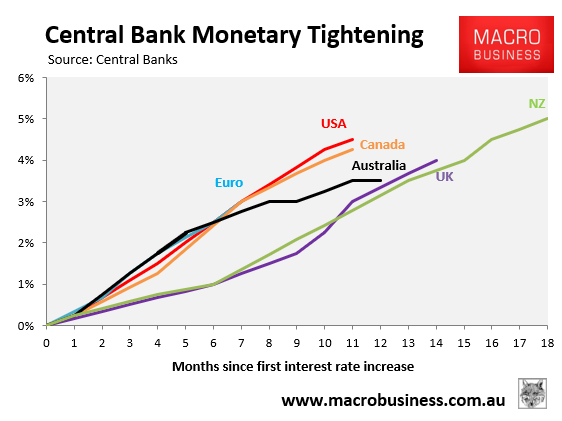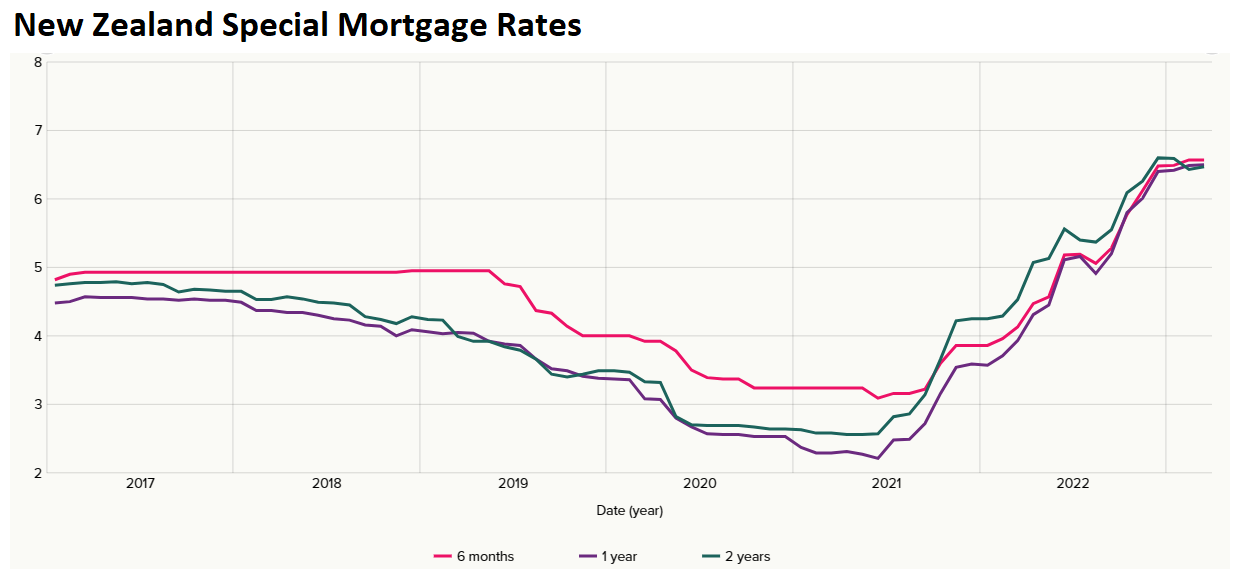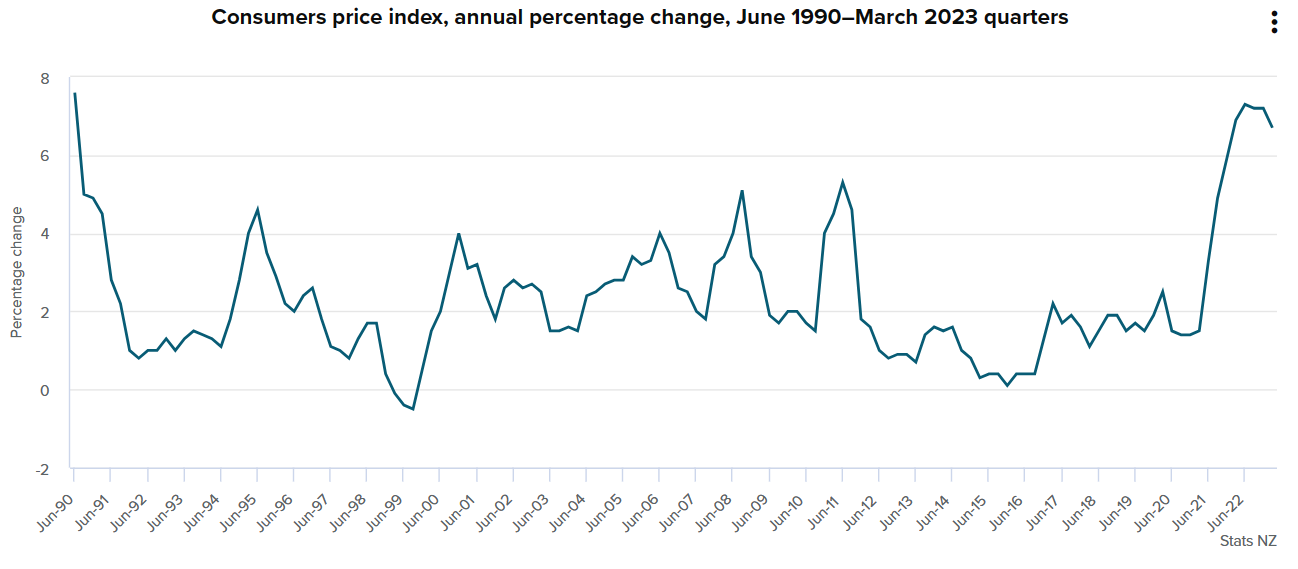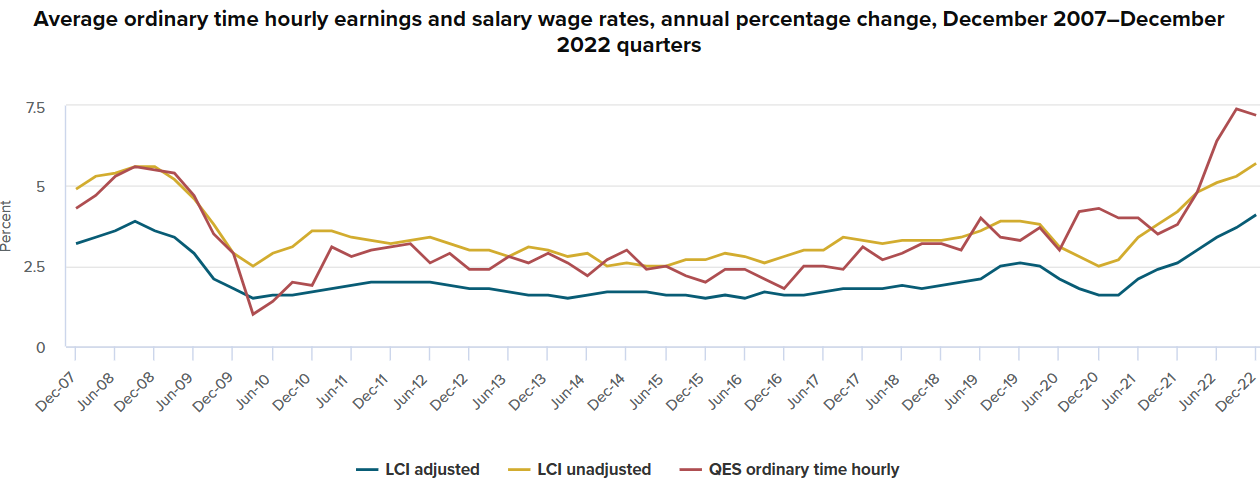The Reserve Bank of New Zealand’s latest 0.5% interest hike took the official cash rate to 5.25%, which represents one of the largest tightening of interest rates in the developed world.

Many economists and commentators believe the Reserve Bank may have gone too far, given New Zealand’s GDP unexpectedly contracted by 0.6% over the December quarter, suggesting the economy is plunging into recession.
House prices have crashed, consumer confidence in the economy and their own finances is tracking at deep recessionary levels, and around half of New Zealand mortgages will this year switch from ultra cheap fixed rates originated over the pandemic to mortgage rates that are more than double:

Therefore, monetary conditions will continue to tighten across New Zealand as these fixed rates expire, even without additional rate hikes from the Reserve Bank.
The problem for the Reserve Bank is that it is still facing high domestically driven inflation.
On Thursday, Statistics New Zealand released its Consumer Price Index (CPI) results for the March quarter, which showed that overall quarterly inflation eased to 1.2% with annual inflation easing to 6.7%:

However, non-tradeable inflation, which is a proxy for domestic demand-driven inflation, remains stubbornly high.
“Inflation is still at levels not seen since the 1990s”, Statistics New Zealand consumer prices senior manager Nicola Growden said.
“Non-tradeable inflation was 6.8% in the 12 months to March 2023, the highest since the series began in June 1999”.
“The 6.8% increase was driven by higher prices for construction, rents, and ready-to-eat food”.
“Non-tradeable inflation measures final goods and services that do not face foreign competition and is an indicator of domestic demand and supply conditions. However, the inputs of these goods and services can be influenced by foreign competition”, noted Statistics New Zealand.
New Zealand wage growth is also rising at a swift pace:

Thus, the Reserve Bank is stuck in a no-win situation whereby it is deliberately driving the economy into recession in order to kill stubbornly high domestically-driven inflation.
By contrast, the Reserve Bank of Australia is facing falling wage growth and relatively softer domestic inflation, which makes its job easier.

